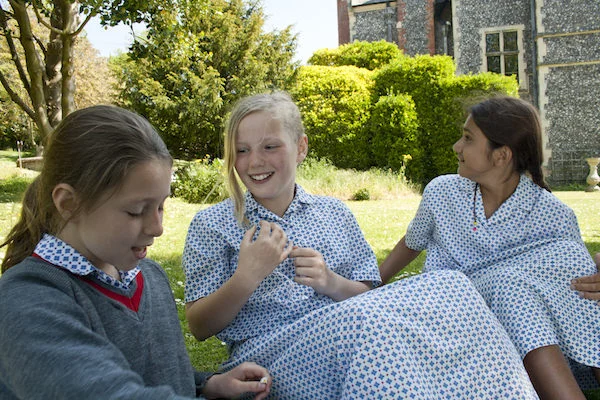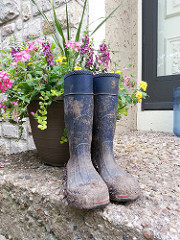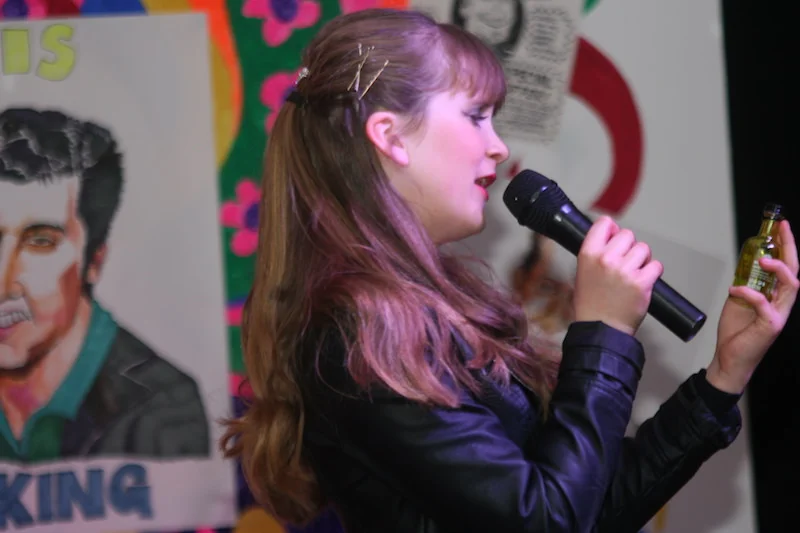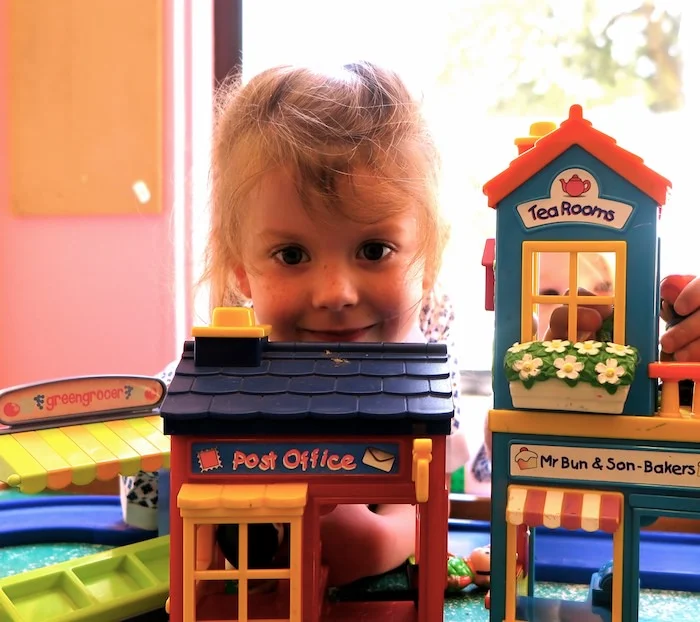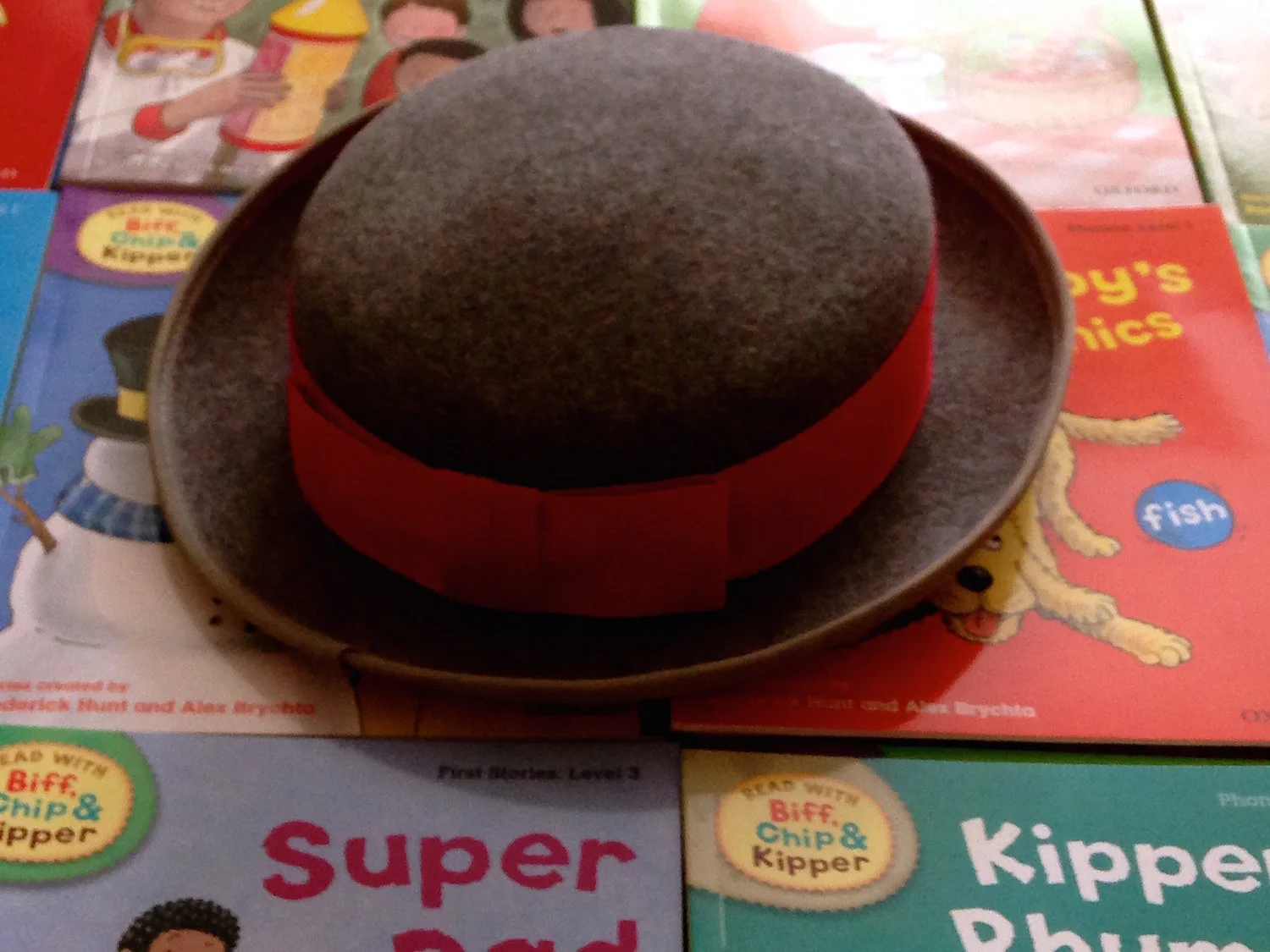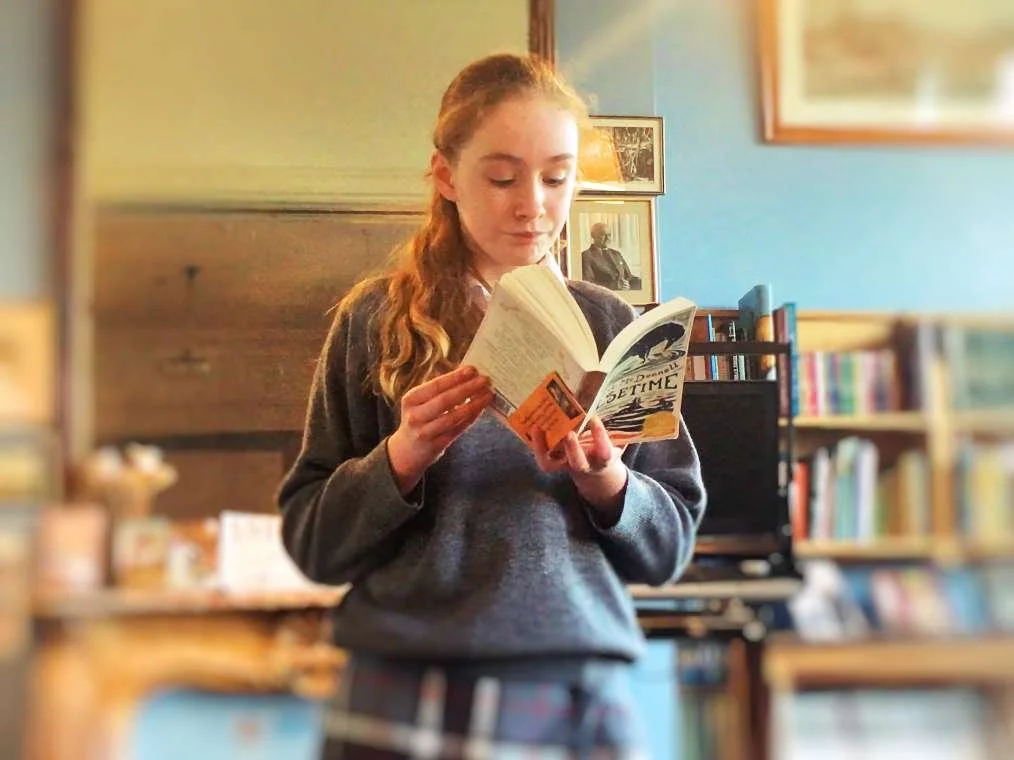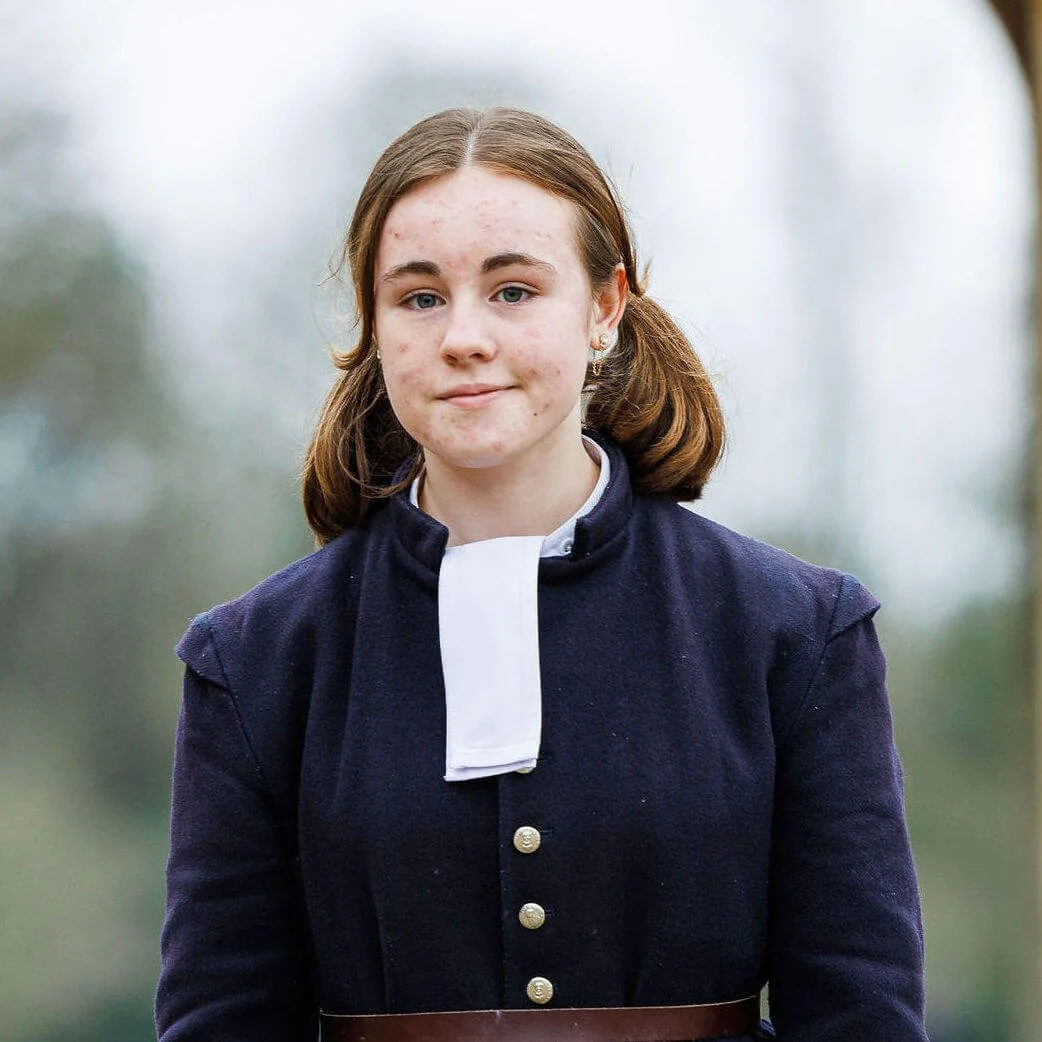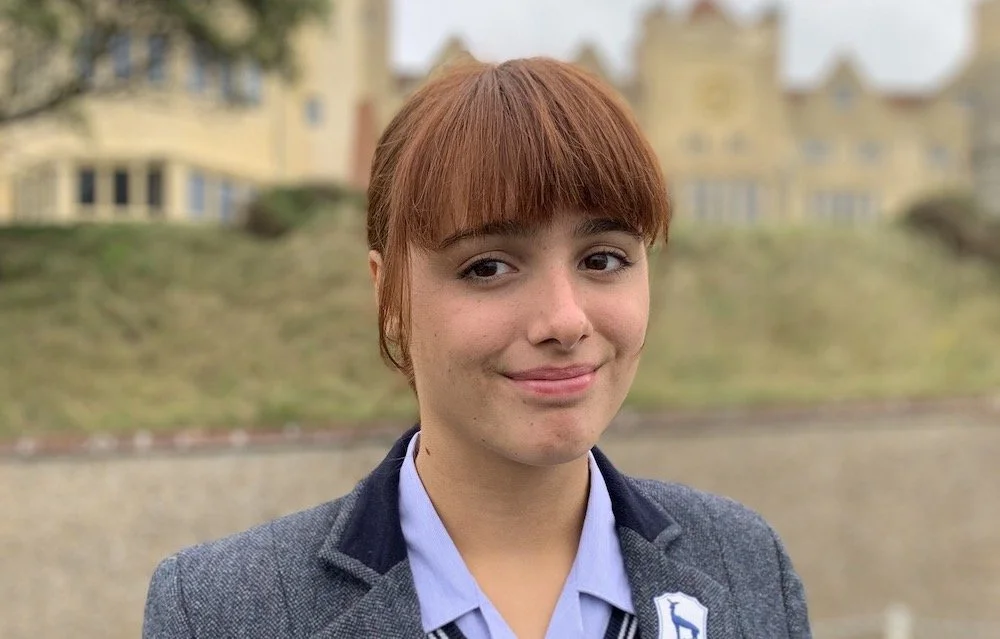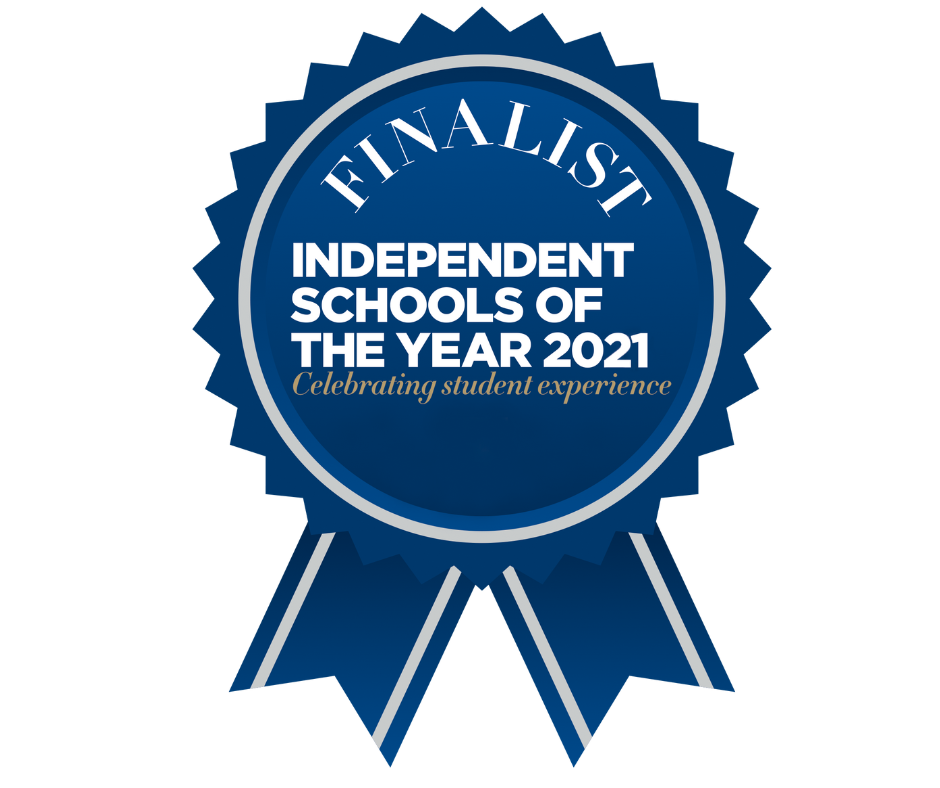What exactly is a prep school? (And the answers to 10 more questions about preparatory schools)
/Pupils arriving at West Sussex independent school Sompting Abbotts
1. What is a 'prep' school in the UK?
‘Prep’ or preparatory schools are UK private schools that are the equivalent to the primary and middle schools of the state education sector. Most cater for children aged two to 13 years, although some take children up to the age of 16.
Like every type of school, preparatory schools are all very different in their ethos and their goals. They’re also different from a mainstream school. Prep schools are independent so they don't have to follow the National Curriculum although many use it as a starting point and then go beyond it.
2. Have prep schools changed over the last century?
Yes, prep schools used to be small establishments designed to make boys aged 8 to 13 ready for boarding school.
These days, most have grown and diversified. More than half of those in the UK are now co-educational.
Prep schools traditionally prepared children to take the Common Entrance Exam for admission into independent secondary or senior schools. This is still true of many prep schools although for some, the focus may now be preparing children for a good state grammar school too.
Assembly at Sussex private school Sompting Abbotts Prep School
“Academically, attending an independent school in England is associated with the equivalent of two additional years of schooling by the age of 16, according to ISC figures. ”
3. How are prep school standards inspected?
The Independent Schools Inspectorate (ISI) inspects most prep schools and Ofsted monitors the ISI, on behalf of the UK’s Department of Education. Leading prep schools also apply for membership of the Independent Association of Prep Schools (IAPS), a schools association with around 650 of the world’s leading prep schools in membership.
Schools must reach a high standard to be eligible for membership, with strict criteria on teaching a broad curriculum, maintaining excellent standards of pastoral care and keeping staff members’ professional development training up to date. Although each IAPS schools is independent, and has its own ethos, each one must demonstrate full commitment to delivering an excellent, well-rounded education to the pupils in their care.
“The fact that children stay at a prep school until 13, as opposed to going to a secondary state school at age 11, means children have two extra years to be able to develop a little more of ‘who they are’. So their social and emotional wellbeing is nurtured for longer. This can mean a smoother transition and that when they do start, they’re more able to withstand some of the difficult external pressures that are commonly present through peer influences in secondary schools. ”
4. How many children are there in a typical prep school?
The average number of children in an IAPS school is 260, but many schools have a smaller enrolment. So prep schools tend to be far smaller and have a more ‘family feel’ than most state schools.
5. Aren’t independent and prep schools dwindling in the current economic climate?
Actually, no. There are more pupils at independent schools in the UK than at any time in the past 40+ years, according to the latest census (2018) by the Independent Schools Council.
6. Can I get help with paying the fees?
Yes, fee assistance exists and continues to increase, with both the amount available and the number of children who benefit rising, says the ISC.
However it is based on a genuine needs basis. Bursaries in 2016 worth more than £700m a year were provided to 41,000 pupils.
Affordability is a priority issue for independent schools and they work hard to remain competitive whilst facing pressures on salaries, pensions and maintenance costs.
Increasingly, independent schools tend to be sensitive to the struggles hard working families face in paying school fees. Last year the overall fee increase was the lowest it has been in 20 years.
“Last year [2017] more than 5,700 pupils paid no fees at all. Parents should always approach the school to see if they might qualify for fee assistance.”
6. How is the curriculum different at a prep school to a state school?
Modern prep schools offer a high standard of education for pupils that is usually based on the National Curriculum and its key stages but that goes beyond it. They balance traditional values with cutting edge teaching and learning. Today they are very different from the traditional cliché of old-fashioned uniforms, rigid discipline and academic rigour.
7. How else are prep schools different to state schools?
They have smaller class sizes, a very strong focus on pastoral care and more ‘enrichment’ or extra-curricular opportunities. The arts, music, speech and drama, and sports tend to be strengths. Many have a strong dramatic tradition. So prep school children develop strong confidence in public speaking and performance.
Girls relaxing on the lawns at Sompting Abbotts Prep School
Prep schools traditionally ensure the children come out with broad horizons and have a lot of fun alongside academia. They tend to concentrate on extending childhood.
The fact that children stay at a prep school until 13, as opposed to going to a secondary state school at age 11, means children have two extra years to be able to develop a little more of 'who they are’. So their social and emotional wellbeing is nurtured for longer.
The kitchens at Sussex independent school Sompting Abbotts Prep School
This can mean a smoother transition and that when they do start, they’re more able to withstand some of the difficult external pressures that are commonly present through peer influences in secondary schools.
Many provide home-cooked meals and have ample grounds, sports halls, shooting ranges, swimming pools, croquet lawns, and even golf courses. So they can be good if your child is sports-inclined.
The other big difference from state schools is prep schools’ emphasis on ‘developing character’ and ‘soft skills’ such as creativity, teamwork, empathy, resilience and honesty.
Prep schools usually focus hard on ‘people skills’ and on children’s ability to communicate effectively and show courtesy and respect.
8. How do prep schools differ from one another?
Children having swimming lessons in the outdoor heated pool at Sompting Abbotts
They all vary hugely, precisely because they are independent, and because they don’t have to follow the National Curriculum slavishly.
Some prep schools have links with specific public schools so this is worth thinking about if you’re hoping for a particular senior school.
If you make it clear that you’re choosing a prep school for its links to a certain senior school or good state secondary, the school will know your aim from the outset and can set to work nurturing your child for this.
Certain prep schools belong to larger educational groups and are highly academic and serve as ‘feeder schools’ to a specific high-achieving senior school. Children all learn differently and if your child isn't academic and unlikely to respond to this type of pressure, then this type of ‘hot-house’ prep school won’t be right for you.
Other prep schools are independent, feed a range of destinations and pride themselves on nurturing and building the confidence of children of all abilities and of being able to help parents decide the right ‘fit’ senior or secondary school for their child.
“Academically, attending an independent school in England is associated with the equivalent of two additional years of schooling by the age of 16, according to ISC figures. DfE performance tables from KS4 to KS5 back this up. They show that 94% of ISC schools added ‘significant’ value compared to 37% of state schools. ”
9. Some prep schools still seem to be ‘family-run’?
Yes, many of the longer-established prep schools are still family-owned. These schools tend to have a less corporate feel and often reflect the values of the proprietor while meeting all ISI and DfE requirements.
These are the characterful type where the owner's family dog sits in the school office and there are piles of wellies on the main school front step.
10. Where can I find a league table of the best prep schools?
The IAPS is opposed to league tables of schools based on the narrow criteria of test results. Looking at each school’s scholarship and Common Entrance exam results will give you a sense of its academic clout while students achievements in other areas will indicate strengths and school ethos.
The IAPS believes that one of the great virtues of its prep schools is their individualism and the breadth of their educational provision, both curricular and non-curricular.
This ‘wider excellence’ is a characteristic of IAPS schools, whether or not they use the Key Stage tests. Typically it is based on specialist teaching and facilities, small teaching groups and strong discipline.
“The other big difference from state schools is prep schools’ emphasis on ‘developing character’ and ‘soft skills’ such as creativity, teamwork, empathy, resilience and honesty. Prep schools usually focus hard on ‘people skills’ and on children’s ability to communicate effectively and show courtesy and respect.”
11. What are the real benefits of a prep school?
Why should you pay for a private education given that you've already paid your taxes for a state education? The fact that parents still send their children to prep schools is an indication of their value and the difference they feel they ill make to their child's future. Parents generally choose preparatory over state schools for these reasons:
Academically, attending an independent school in England is associated with the equivalent of two additional years of schooling by the age of 16, according to ISC figures.
DfE performance tables from KS4 to KS5 back this up. They show that 94% of ISC schools added 'significant' value compared to 37% of state schools.
Class sizes are lower, offer more individual attention and are taught by more specialist teachers. This can be important if your child is either very bright or has specific educational needs. Read about the educational advantage provided by lower class sizes here for academic outcome.
Prep schools are smaller than their state equivalents. No child 'gets lost in a crowd'.
The facilities are often excellent, with good sporting amenities and often, large grounds and open space for self-discovery.
Most parents, however, choose a prep school because of the ‘value-added’ educational programme offered and the boost to life skills this gives. This tends to be more ‘rounded’ than at a state school, with more emphasis on art, drama, music, debating and sports etc.
Sompting Abbotts is a co-educational preparatory school near Worthing, Steyning and Shoreham-by-Sea. It has been a family-owned school since it was established in 1921. Sompting Abbotts Preparatory School is a Sussex independent school that is a member of the IAPS (International Association of Preparatory Schools).




